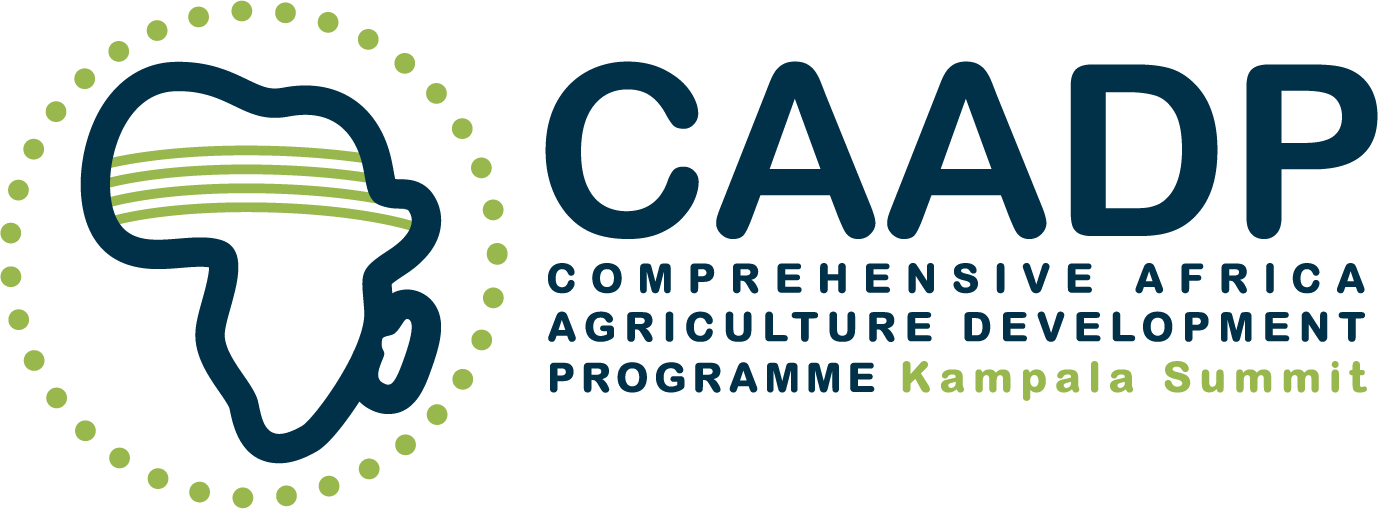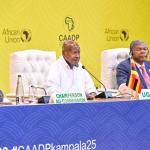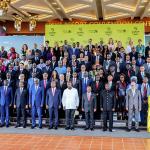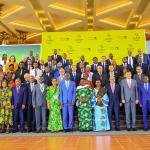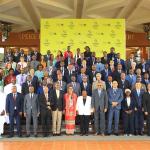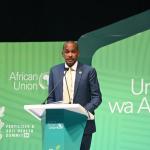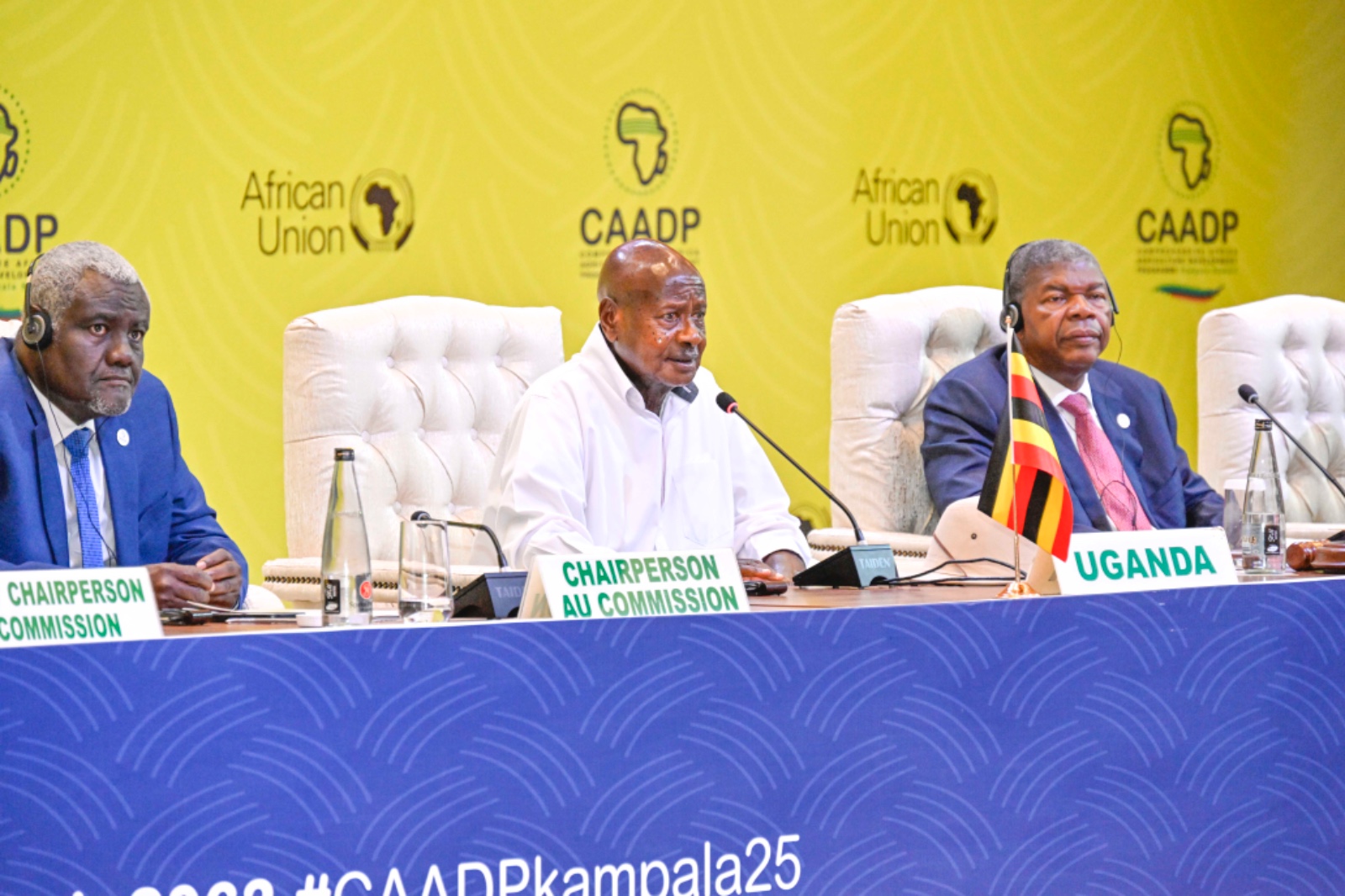
Transforming Agriculture for Economic Prosperity: Insights from President Museveni's Speech at the CAADP Kampala Summit 2025.
On January 11th, 2025, His Excellency Yoweri Kaguta Museveni, President of the Republic of Uganda, delivered a compelling speech at the Extraordinary AU Summit on the Post-Malabo CAADP in Munyonyo, Kampala, Uganda. The speech highlighted Uganda's journey towards economic transformation through agriculture and provided a roadmap for the continent's future. Here are the key takeaways from his address:
Historical Context and Economic Vision
President Museveni began by welcoming the distinguished guests and providing a historical overview of Uganda's economic journey. He emphasized that since the 1960s, Uganda has identified four key sectors for economic advancement: Commercial Agriculture, Manufacturing, Services, and ICT. He contrasted this vision with the colonial economy, which was primarily subsistence-based and focused on a narrow range of cash crops and minerals.
The Shift to Commercial Agriculture
The President outlined Uganda's strategy to fully commercialize agriculture, aiming to achieve both food security and income security for homesteads. He introduced the concepts of intensive and extensive agriculture:
Intensive Agriculture: Suitable for families with small landholdings, focusing on high-value crops like coffee, fruits, dairy products, poultry, piggery, and fish farming.
Extensive Agriculture: Suitable for families with larger landholdings, focusing on crops like cotton, tea, maize, and sugar-cane.
Value Addition and Economic Benefits
A significant portion of the speech was dedicated to the importance of value addition in agriculture. President Museveni highlighted the economic benefits of processing raw materials into finished products, which can significantly increase income and create jobs. He pointed out the challenges posed by external lobbies that prefer Africa to remain a raw-materials producer and emphasized Uganda's progress in various sectors, including textiles, dairy products, fish, sugar, maize, leather, and furniture.
Integration and Sustainability
The President stressed the need for both vertical and horizontal integration in agriculture:
Vertical Integration: Ensuring the entire value chain, from production to processing to marketing, is developed within the country.
Horizontal Integration: Linking agriculture with other sectors like manufacturing and services to create a holistic economic ecosystem.
He also underscored the importance of integrating local agricultural products into the hospitality industry to promote self-sufficiency and reduce dependency on imports.
Measures for Agricultural Advancement
President Museveni outlined several measures Uganda has taken to transform its agriculture:
Political Mobilization: Encouraging people to shift from subsistence farming to commercial agriculture.
Scientific Research: Developing improved seeds with higher yields and resistance to diseases and drought.
Best Agro-Practices: Educating farmers on practices like spacing, mulching, and water conservation.
Disease Control and Food Safety: Implementing measures to control diseases and ensure food safety.
Irrigation and Fertilizers: Promoting the use of irrigation and fertilizers to stabilize agriculture.
Soil Mapping and Land Management: Conducting soil mapping and discouraging land fragmentation.
Water Resources and Trade
The President addressed the critical issue of water resources, highlighting Uganda's abundant water supply and the need to protect it from encroachment. He also discussed the potential of utilizing the Congo River's water to alleviate water stress in other parts of Africa and the importance of exploring desalination technologies.
On trade, President Museveni criticized non-tariff barriers that disrupt agricultural production and trade within Africa. He called for a more integrated and cooperative approach to ensure sustainable agricultural advancement across the continent.
Conclusion
In conclusion, President Museveni's speech provided a comprehensive vision for transforming agriculture in Uganda and Africa at large. By focusing on commercial agriculture, value addition, integration, and sustainable practices, Uganda aims to become an economic powerhouse. The President's address serves as a call to action for African nations to collaborate and harness their agricultural potential for economic prosperity.
H.E. Yoweri Kaguta Museveni
President of the Republic of Uganda
